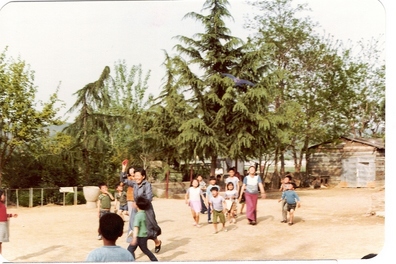 =0=
=0=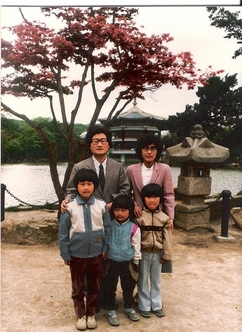 =0=
=0=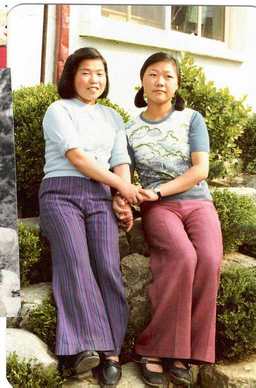 =0=
=0=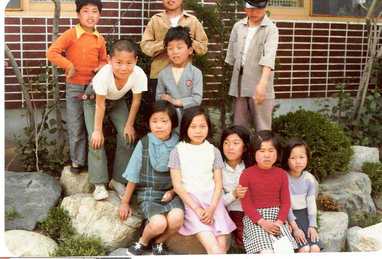 =0=
=0=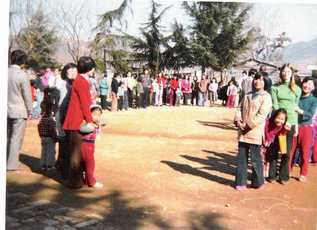 =0=
=0=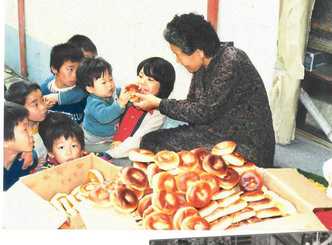 =0=
=0=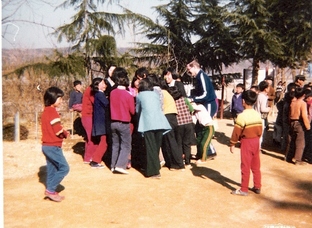 =0=
=0=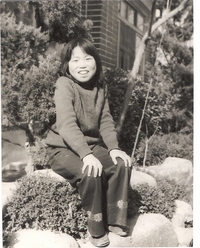 =0=
=0=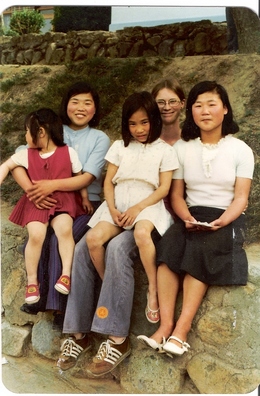 =0=
=0=Click here to see the next page of this series. Click on the back button of your browser or click here to see the previous page of this series. Click on any of the little pictures to see it at normal size. Click on the '=0=' after the picture to see it in giant size (about 2 minutes to download on dialup connection and larger than screen size). This could be useful if you wanted to really look at one part of the picture or to make a print.
| When I first arrived in Korea there were only two officers assigned to the 169th Signal Company (Lt. Baldwin was assigned to the 169th, but designated to a special high security communication facility, the switch, that I never visited, too classified). So I got the miscellaneous tasks that didn't interest the Company Commander. One was the Orphanage Fund. Our company had been associated with the Hae Yuk Won orphanage for several years, but there was a move in progress to end the fund. Here is a picture of Mrs. Sohn, the head of the Hae Yuk Won orphanage flying a kite with several of the young children. This page is referred to in the series about our trip to Korea and the travels overview. |  =0=
=0= |
| The problem with the orphanage fund is that Koreans were (and probably are) quite nationalistic, with a lot of national / cultural pride. As such they were also pretty racist and strongly disapproved of racial mixing (in the U.S. they used to have a derogatory term miscegenation for racial mixing). Orphans from liasons with American soldiers, known as Amerasians, were not well treated (due to the strong influence of families in Korean life, no orphans were very treated). They were all sent to Seoul (where there were more Americans). The soldiers of the 169th were offended and wanted to support their own (so to speak) and so end the relationship with Hae Yuk Won orphanage. That sounded pretty reasonable to me, but Mr. Park (pronounced like Bach, but with an ambguous b/p, something in the middle between the two), shown here with his family, came to see in my office. He got me to reconsider and I decided that those who wanted to support the orphanage in Seoul could, but that would be almost completely financial support only as they were about four hours away by train. For those who wanted to more directly help (as most soldiers there were away from their own families), then we should have a local orphanage as well. |  =0=
=0= |
| That worked out nicely as it got me involved with a series of nice projects at the orphanage. The Hae Yuk Won orphanage was supported by the local government, a Taegu church (Mr. Park was a member of that church), and a U.S. church charity, the Home of the Good Shepherd in Nampa, Idaho. However, the 169th could take on tasks like organizing Easter egg hunts. That was the most satisfying of my duties in Korea (though it was not a very central job). Barbara made special friends with one orphan girl, Miss Kim. This is Miss Kim (on the left) and her best friend. |  =0=
=0= |
 =0=
=0= |
 =0=
=0= |
| Above are pictures of some of the kids. We also had a fine time visiting with the kids. We would play Duck, Duck, Goose, which was new to me but apparently was a traditional American game. Here is Mrs. Sohn giving baked goods to some of the younger kids. |  =0=
=0= |
 =0=
=0= |
 =0=
=0= |
| Above is a picture of me and some of the kids. Here is a picture of Barbara with some of her special friends including the two Miss Kims. |  =0=
=0= |
This page was last updated on November 8, 2007.